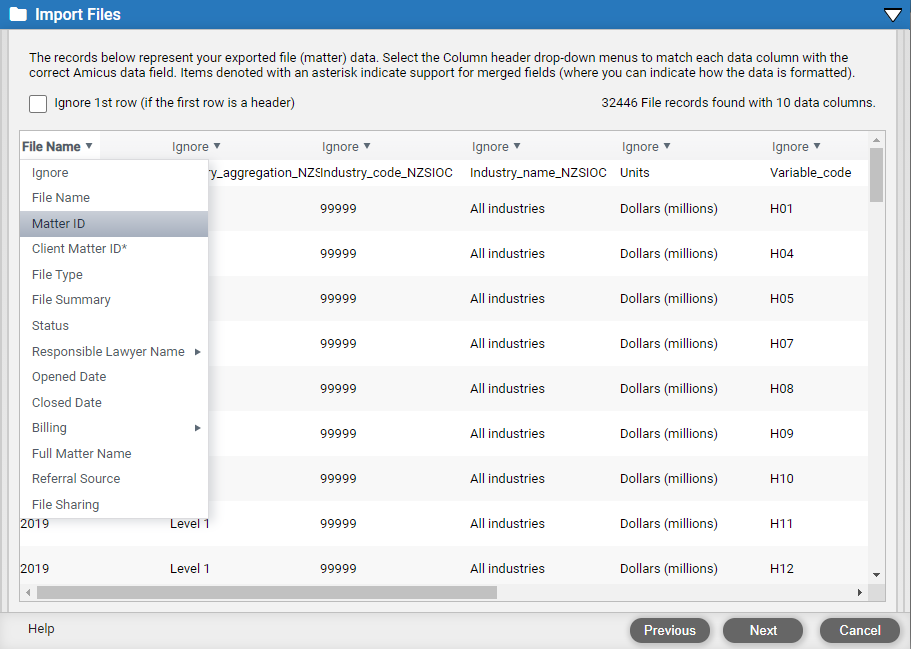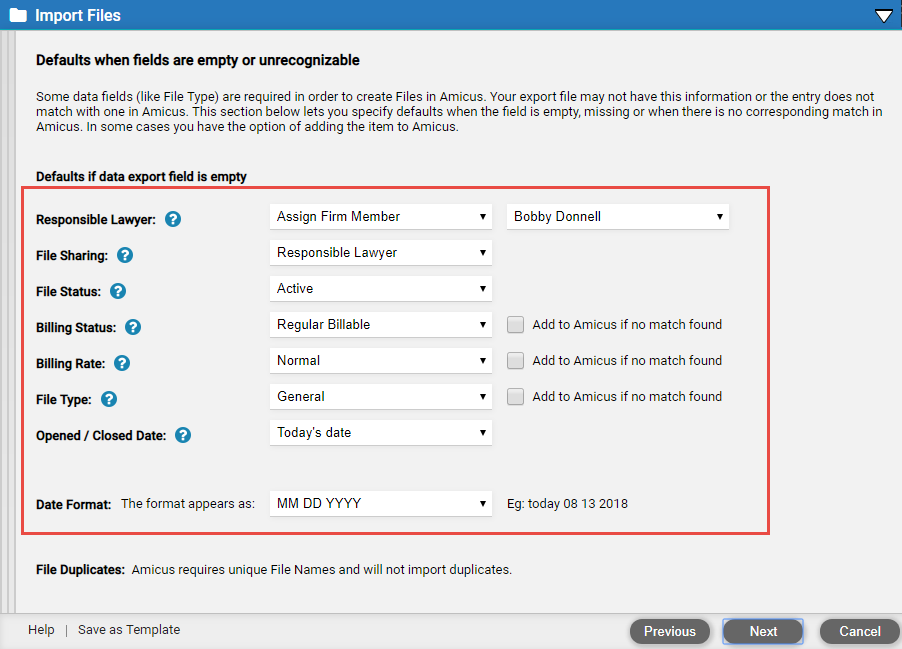
This topic covers the import features specific to the importing of new matter files to Amicus.
File Name must be mapped. A file without a File Name cannot be imported.
Optionally,
a file can be mapped by Matter ID. Associating
a file by ID ensures that duplicate (or similar) files do not impact the
ability to import the file into the system.

Optionally, contacts can be mapped by Import Contact ID. Associating a contact by ID ensures that duplicate (or similar) names do not impact the ability to import into the system.
Optionally, contacts can be mapped by Import Contact ID. Associating a contact by ID ensures that duplicate (or similar) names do not impact the ability to import into the system.
Existing files are not overwritten. Only new files are added.
Duplicate files (files with the same file name) are not imported.
Only the Matter ID portion of a Client Matter ID is imported.

Responsible lawyer – Firm member to be assigned if a file lacks this data. Or choose to not import the file in this case. Imported files are not necessarily shared with the Amicus administrator.
Sharing – Who to share the file with if it lacks firm member/group sharing information—the file's "Responsible Lawyer" or a specified firm member/group.
Status – Status to assign if a file lacks this data (e.g. "Active").
Billing
status –
Status to assign if a file lacks this data (e.g. "Regular Billable").
If a file's billing status isn't defined in Amicus, choose whether it should
be added to the Amicus list and assigned to the file—otherwise the default
will be assigned.
Billing
rate label –
Label to assign if a file lacks this data (e.g. "Normal").
If a file's billing rate label isn't defined in Amicus, choose whether
it should be added to the Amicus list and assigned to the file—otherwise
the default will beassigned.
File
type –
Type to assign if a file lacks this data (e.g. "General").
If a file's file type isn't defined in Amicus, choose whether it should
be added to the Amicus list and assigned to the file—otherwise the default
will be assigned.
Opened/closed date – Date to assign if a file lacks an opened date, or it is a closed file and lacks a closed date—"Today" or a particular other date.
Date formatting – How dates are formatted in the data file (e.g. "MM/DD/YYYY").